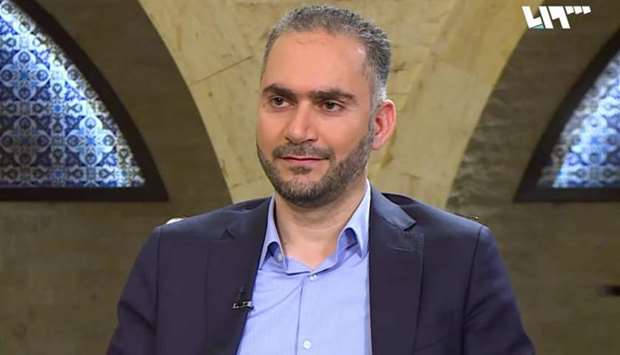Historical events such as the numerous deadly plagues and pandemics may have relevance to today’s world amid the global novel coronavirus (Covid-19) outbreak, according to Dr Mutaz al-Khatib, assistant professor at the Centre for Islamic Legislation and Ethics at Hamad Bin Khalifa University (HBKU).
“This pandemic raises different concerns, including whether it we look at it as torture, and whether faith can protect us from getting the infection,” said Dr al-Khatib, also a professor of Ethics at the College of Islamic Studies at HBKU, a member of Qatar Foundation (QF).
Over the centuries, humanity has witnessed these outbreaks, with perhaps the most infamous being the Plague of Emmaus, which took place during around the 7th Century, and the Great Plague – also known as the Black Death – which spread across Europe during around the 14th Century.
“It also leads to discussions regarding the performance of religious rituals and congregational prayers, the closure of mosques, and moral debates to determine the optimal behaviour in such a situation, whether for the individual, the community, or the state. There is also a need to provide an ethical justification for a certain action or policy, as well as the political and economic consequences that this may raise,” he said.
Dr al-Khatib explains that dealing with such conditions relates to several principles such as preserving lives, the public interest, and balancing them in times of conflict and moral responsibility towards oneself and others.
He pointed out that there are prophetic directives related to the plague, saying: “There have been many occasions in Islamic history that offer guidance about pandemics, relating to the Prophetic Hadith that says not to enter a land where there is an outbreak of plague, and not to leave a place if the plague breaks out while you are there. There is also a great deal of Islamic literature on plagues that we can benefit from in our new context.”
“Such pandemics and crises raise questions about the right approach to addressing these situations – not only in terms of medicine, but also from the point of view of Islamic ethics and bioethics in relation to infectious diseases – and governing, guiding, and assessing human actions and behaviours, such as prioritising treatment when there are scarce resources, and whether measures such as travel restrictions, the closure of airports and mosques. and social isolation and quarantine measures are ethically justified,” Dr al-Khatib said.
“And if they are justified, how do we ensure that people are receiving their basic needs in this case? How do we prevent the stigmatisation of people infected by a virus? What are the virtues that individuals should hold in the case of epidemics, whether in their movements, their consumption and storage of goods, their willingness to volunteer and support healthcare providers, or their adherence to government instructions?” he added.
Dr al-Khatib was among the participants in a recent interactive webinar organised by the World Innovation Summit for Health, QF’s global health initiative, titled “Coronavirus: The Interplay of Medical and Islamic Ethics,” explaining that “the way we deal with coronavirus is no longer an individual choice.”
“In case of emergency, there are two major principles: the first is maximising the collective benefits for society, and the second is avoiding inflecting and reciprocating harm, in accordance with the Prophetic Hadith: ‘There should be neither harming (?arar) nor reciprocating harm (?irEr)’,” he said.
“Any action or decision that an individual makes will have an impact on everyone, because this virus spreads through social interaction, and statistics have shown that for each confirmed case, there may be 5 to 10 cases that are not yet confirmed. This means that the person may be a carrier of the infection while not showing any symptoms, so the numbers double,” Dr al-Khatib noted.
“Another important issue is that following the guidelines designed to limit the spread of the virus will help the health system of any country to avoid a crisis of medical capacity. Any healthcare system has limited capacity and is not necessarily equipped to receive a very large number of patients at the same time,” he said.
“This is why the situation in some countries is tragic, and it is not the result of the failure of their healthcare system, but due to exhausting a capacity that is intended for normal conditions, not epidemics. This explains why governments are implementing restrictions on freedom of movement, locking down cities, and encouraging people to maintain a social distance. Adhering to these measures is a moral responsibility for every one of us,” Dr al-Khatib added.
He also highlighted the moral and ethical responsibility of states to protect public health, saying: “Preserving the soul is fundamental in Islamic Law.”
“There are articles stipulated under the Penal Code that impose penalties and fines on whoever, purposefully or accidentally, causes the spread of an infectious disease or a pandemic, and this is due to the huge damage that it causes to communities”, Dr al-Khatib said.
Speaking about how some people misunderstand the difference between “God’s destiny” and the importance of taking precautions against such a pandemic, Dr al-Khatib said: “According to the Prophetic Hadith, ‘there is no disease that Allah, has created, except that he also has created its treatment’”.
“Both preventive and curative measures fall under the broad category of treatment, because there is always a relationship between cause and effect, and the concept of causation is fundamental in the Islamic teachings,” he said.
Dr al-Khatib said another strand of misinformation amid Covid-19 is that places of worship can never witness a spread of a pandemic. “This goes against what epidemiology and reality proves, and will eventually create a disturbance of public order”.

Dr Mutaz al-Khatib
